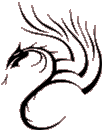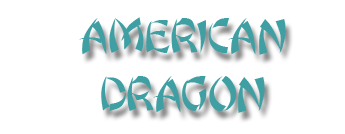INDIVIDUAL HERBS
| Pharmaceutical Latin: | Fructus Aurantii |
| Common English: | Bitter Orange |
| Taste | Temperature | Entering Meridians | Dosage |
Bitter Acrid (Sour) |
Slightly Cold (Cool) |
Spleen Stomach Large Intestine (Liver) |
3-10g Tincture: 1-3ml |
| Actions | Indications/Syndromes |
Promotes the movement of Qi, reduces distention and pressure and resolves hardenings |
Qi Stagnation and accumulation (especially in weak or deficient patients) |
Removes stagnated food |
Food Stagnation |
CONTRAINDICATIONS |
|
INCOMPATIBILITIES |
HERB/DRUG INTERACTIONS |
|
Ram. Cinnamomi |
Rx. Platycodi |
|
Upper Jiao surface Heat problems. |
A stabbing pain in the chest and flanks. |
Regulates the flow of Qi in the chest and aids in the transformation of Phlegm for, chest congestion. |
Rz. Cimicifugae |
Rx. Curcumae |
|
Relaxes the bowels and encourages the downward flow of turbid Yin. |
Liver Qi Stagnation with a stifling sensation in the chest and fullness in the epigastrium and abdomen with Heat signs. Stabbing pain in the chest, flanks and abdomen due to Blood Stagnation. |
Itching of the skin. |
- This herb is less effective than Fr. Aurantii Immaturus Zhi Shi for constipation.
- The effect of this herb is milder than Zhi Shi and is better for removing Food Stagnation and Deficiency of Qi in the Spleen and Stomach.
- It is used for indigestion, constipation, abdominal distention, a stuffy chest, thick, yellow sputum, uterine, rectal and gastric prolapse.
- Per. Citri Reticulatae Chen Pi and Exocarpium Citri Reticulatae Rubra Ju Hong are used for Spleen and Stomach disturbance and cough, Fr. Aurantii Immaturus Zhi Shi is often used in treating Gallbladder congestion and constipation, Zhi Ke is often used with surface Heat such as sore throat, skin eruptions or hot flashes.
- This herb is most effective for Liver Qi Stagnation and especially for flank pain.
- It is good for a stifling sensation in the chest and belching.
- For postpartum uterine prolapse, soak in a decoction of Zhi Ke, after a long while, it will recede.
- Both Zhi Ke and Fr. Aurantii Immaturus Zhi Shi are the same fruit at different stages of development. Zhi Shi is unripe and Zhi Ke is almost ripe. Both break up Qi, disperse clumps and Phlegm and reduce focal distention. Zhi Ke governs the upper trunk, including disorders of the chest, diaphragm, skin and body hair while Zhi Shi governs the lower trunk, including disorders of the Heart, abdomen, Spleen and Stomach. Its nature is violent and excels at thrusting downward, while Zhi Ke is gentler and slower in promoting the movement of Qi through the chest, diaphragm, Lungs, Stomach and Large Intestine.
- Dry-fried Bitter Orange Chao Zhi Ke is more moderate than unprepared Bitter Orange Zhi Ke. and is more appropriate for elderly or weak patients or for inclusion in tonifying formulas to aid digestion.
- Charred Bitter Orange Zhi Ke Tan is much less cold and enters the Blood level to stop bleeding. It is also used for Qi blockage disorders associated with bleeding such as Intestinal Wind.

